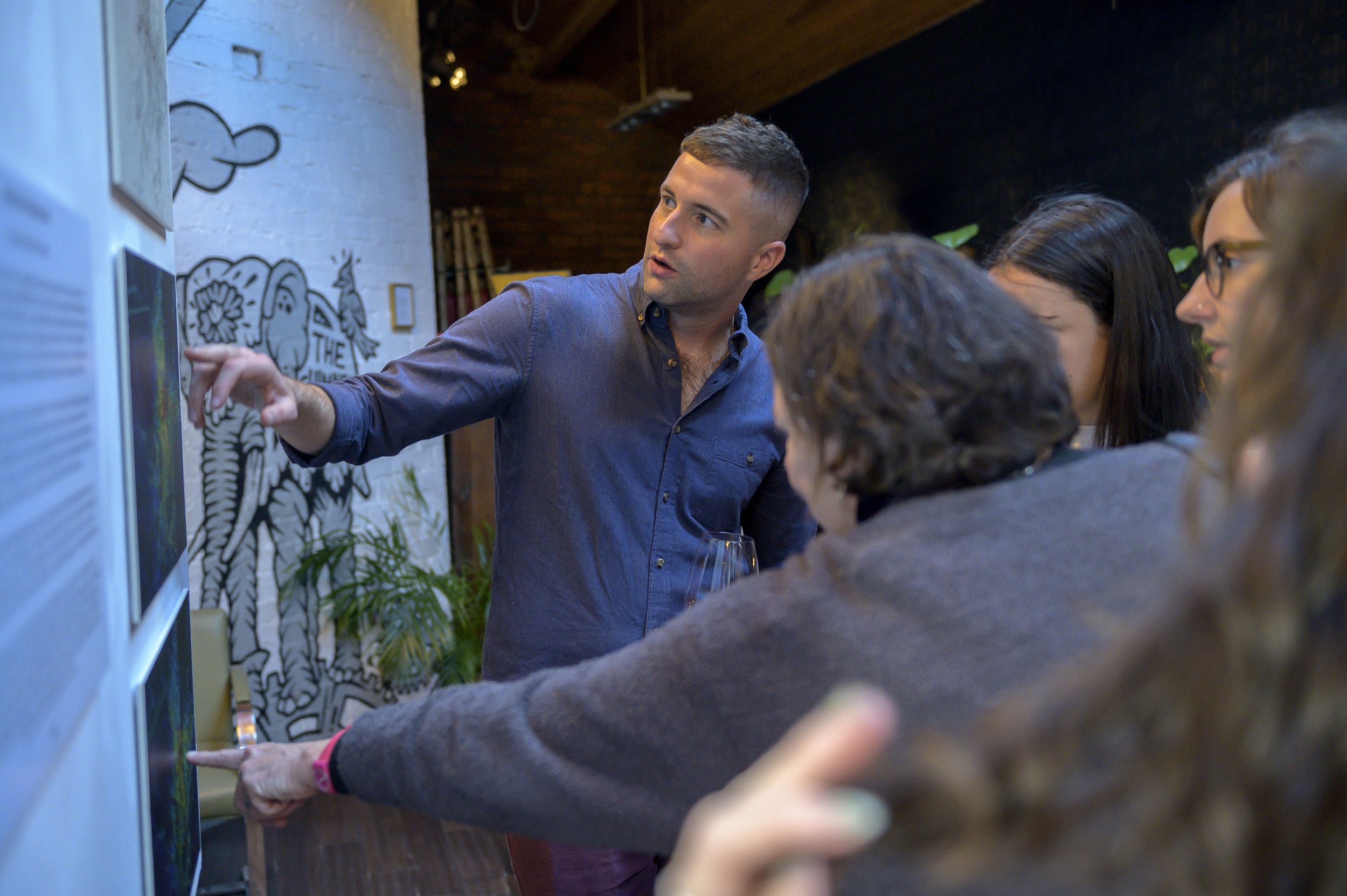
About me
I am an early career academic researcher, currently employed as ESRC Postdoctoral Fellow at the University of Sheffield. My research explores the histories of British counter-terrorism and peacebuilding politics in Northern Ireland, 1920-1998. I am currently writing a book on this topic: situating evolutions in UK security practice during the ‘Troubles’ in relation to longer-term patterns of Anglo-Irish politics.
I completed my PhD in Politics at the University of Sheffield in 2023, having previously studied History at the University of Oxford and International Relations at the London School of Economics. Before beginning my PhD, I worked in the UK Parliament as a Researcher and Senior Caseworker. I have published articles on the histories of British security in journals including the European Journal of International Security, the Review of International Studies, and Critical Studies on Terrorism.
My work is informed by post-structuralist and genealogical traditions. I use mixed methods of quantitative and qualitative analysis to assess a blend of textual and spatial sources. My wider interests include critical approaches to security; UK and Irish politics; and historical approaches to political science/international relations.
-
I have a mixed interdisciplinary background in history, political science, and international relations. I studied a BA in History at the University of Oxford (2011-2014); followed by an MSc in International Relations at the London School of Economics (2015-2016). My early research specialised in UK and US state discourses during the ‘War on Terror’.
Before beginning my PhD, I worked outside academia. I spent one year working for an international development consultancy, serving clients like Amnesty International, WWF, and Malaria No More. I then worked in the UK Parliament for three years, serving as Parliamentary Researcher and Senior Caseworker for two Labour MPs (including a shadow minister and a select committee chair).
I completed my PhD at the University of Sheffield between 2020 and 2023. My research was funded through a £99,000 ESRC studentship. My thesis explored British Government security interventions during the Northern Ireland ‘Troubles’. These included the passing of the UK’s first-ever counter-terrorism acts (enacting provisions like stop-and-search, non-jury trial for terrorist suspects, and detention without charge). They also included construction of so-called ‘peace walls’ - security infrastructures built by UK military and governmental agents to keep Northern Irish communities physically separate.
I am currently employed as ESRC Postdoctoral Fellow at the University of Sheffield. I was awarded a grant of £130,000 under this fellowship, to pursue research dissemination and impact activities: including rewriting my PhD thesis as book, publishing articles, and organising a public exhibition of visual research materials. This exhibition is an expanded version of a showcase of photographs of Belfast peace walls, and data graphics visualising their effects, which I hosted in Sheffield in 2023 and which was viewed by over 30,000 people.
-
My research explores the histories (or ‘genealogy’) of British security politics in Northern Ireland.
I am currently writing a book assessing the emergence of the UK’s first-ever counter-terrorism laws in the mid-1970s (amidst violence of the Northern Ireland ‘Troubles’), as well as the development of peacebuilding strategies which led to the 1998 Good Friday/Belfast Agreement. My book traces the roots of these Troubles-era counter-terrorism and peacebuilding interventions, across a longer history of Anglo-Irish politics. I find that, instead of manifesting a shift in UK security practices, these interventions actually represented the continuation of long-term patterns of British politics on Northern Ireland.
My research uses mixed methods of quantitative and qualitative analysis, to assess a blend of linguistic and spatial data.
My book’s empirical materials are drawn from archival fieldwork in London and Belfast, as well as desk-based quantitative studies. My book applies corpus linguistic methods of keyness and collocation analysis to a new database capturing all UK parliamentary debates on Northern Ireland from 1920 (the year Northern Ireland was created under the Government of Ireland Act) to 1972 (the year Westminster assumed direct rule responsibilities in Northern Ireland following suspension of devolved administration). Through this quantitative analysis, I have established the parameters and continuity of a system of logics for thinking/speaking about Northern Ireland in British political discourse operative over the first six decades of the former’s existence. My book then deploys materials from the archives to trace connections between these long-term logics of British discourse on Northern Ireland, and schemes informing the design and legitimation of Government counter-terrorism and peacebuilding during the Troubles.
Beyond my book project, I also use quantitative and qualitative methods to explore spatial and visual data associated with Northern Ireland’s so-called ‘peace walls’. These walls were built in Northern Irish cities by British military and governmental agents from 1969 onwards - containing violence between communities by keeping them physically separate. I use quantitative ‘space syntax’ techniques to assess the (uneven) distribution of peace walls’ effects for spatial mobility across Belfast. However, I also use qualitative visual methods to explore how these walls have been appropriated to alternative messaging on Northern Irish politics, through mural-painting by local agents.
I have published my research in leading journals, including Review of International Studies, the European Journal of International Security, and Critical Studies on Terrorism (follow this link for access to these publications).
-
I have experience as a seminar leader, guest lecturer, and student mentor. I have taught a number of modules in the University of Sheffield’s departments of Politics and Journalism. These include:
International Relations: the World’s Wicked Problems (second-year undergraduate module);
Communication in Peacebuilding (postgraduate module);
Contemporary Global Security (postgraduate module);
British politics (first-year undergraduate module);
Politics of the Left: Past, Present and Future (second-year undergraduate module);
Methods of Political Analysis (second-year undergraduate module).
My aim in teaching is to empower students to reach their own conclusions on course materials, through independent critical thought and collegiate collaboration. I achieve this mission by deploying innovative methods like student-led workshops, and ensuring coursework meets a diverse range of skillsets (arts-based, team-led, digital - as well as conventional written/spoken assignments).